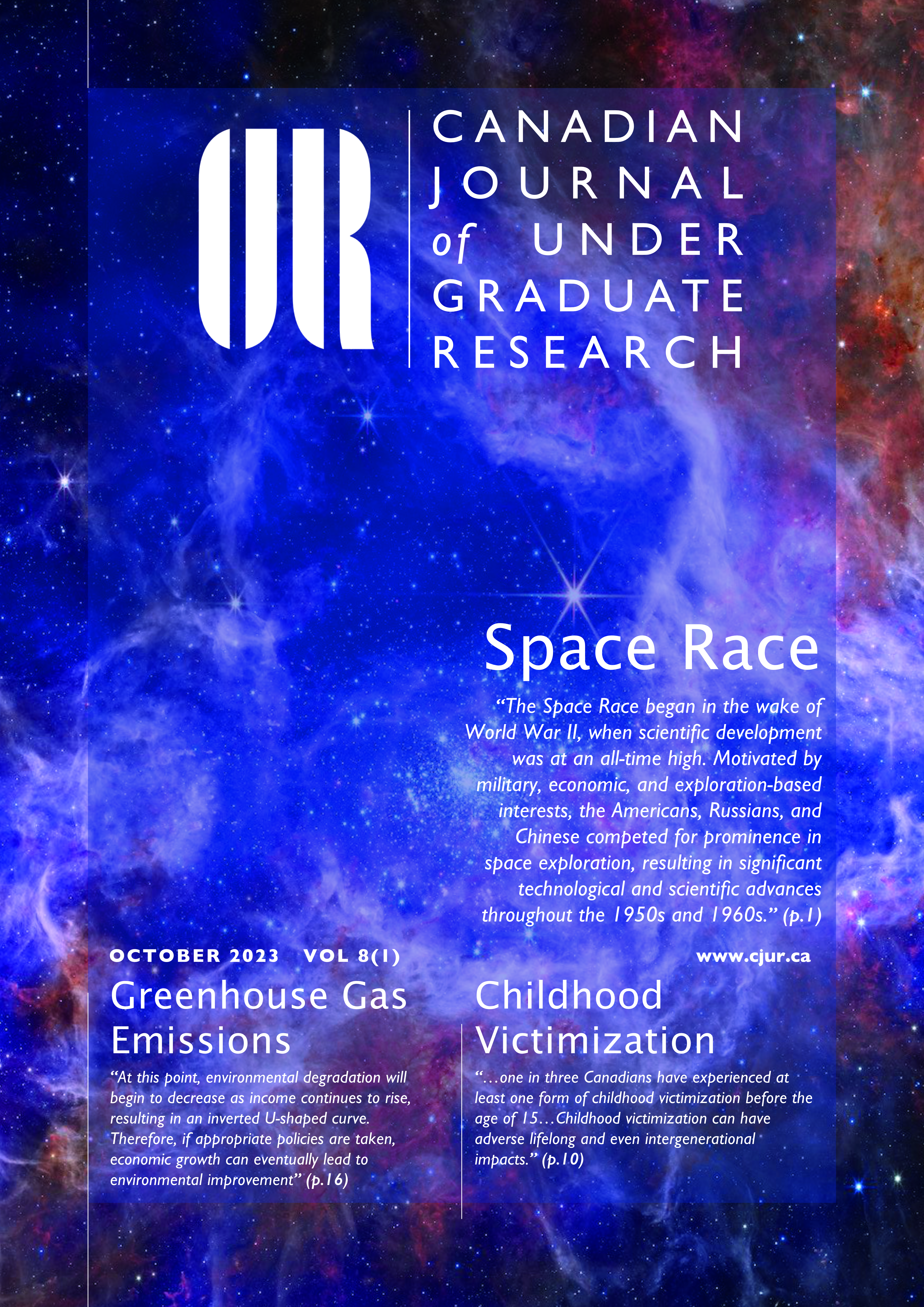Assessing the Relationship Between Childhood Victimization and Excessive Binge Drinking in Adulthood
Abstract
The purpose of this study was to examine the relationship between childhood victimization and adulthood binge drinking. Although this association is well established in the literature (e.g., Werner et al., 2016), we know little about differential effects associated with several abuse types. We used the Statistics Canada General Social Survey, Cycle 28, 2014 (GSS- Cycle 10) which included a nationally representative Canadian sample (N = 20,892). Childhood victimization included physical abuse, sexual abuse, as well as witnessing inter-personal violence. Binge drinking was defined as having had five or more drinks on the same occasion. The multivariate regression analysis found that child victimization is a robust risk factor for binge drinking in adulthood controlling for age and gender. In particular, physical and sexual violence in childhood significantly predicted higher levels of alcohol abuse in adulthood. Findings provide insight into intervention mechanisms specifically aimed at reducing both childhood abuse and risky alcohol consumption.
Downloads
Published
Issue
Section
License
Authors who publish with this journal agree to the following terms:
- Authors retain copyright and grant the journal right of first publication with the work simultaneously licensed under a Creative Commons Attribution License that allows others to share the work with an acknowledgement of the work's authorship and initial publication in this journal.
- Authors are able to enter into separate, additional contractual arrangements for the non-exclusive distribution of the journal's published version of the work (e.g., post it to an institutional repository or publish it in a book), with an acknowledgement of its initial publication in this journal.
- Authors are permitted and encouraged to post their work online (e.g., in institutional repositories or on their website) prior to and during the submission process, as it can lead to productive exchanges, as well as earlier and greater citation of published work (See The Effect of Open Access).

